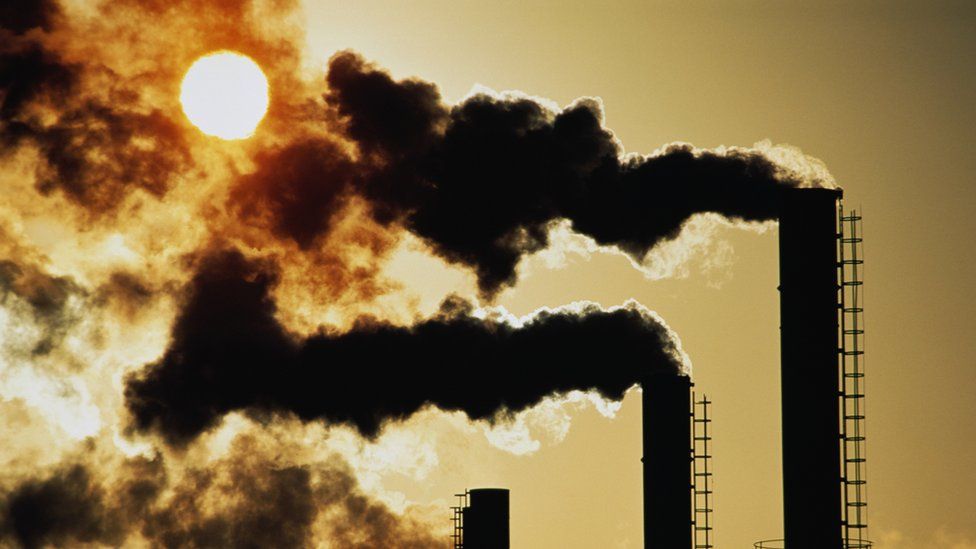
Although the connection between climate change, national security and national security is not new in recent years, it has received increasing public attention. The human impact of climate change on security can increase violence, worsen existing threats, and make it more difficult to live in peace. These threats can have an impact on everything from the economic stability of countries to their health.
The effects of climate changes are not only a threat to national security; however, they have been an ongoing topic of discussion in national policy guidance since 1991. These issues include increased heat waves, drought, flooding, and sea level rise. The Air Force chief-of-staff has mentioned conflict in Syria as one example of the effects of climate change.

Loss of agricultural production is one major consequence of climate change. Crops struggle to survive the hot and dry conditions that can occur in tropical regions. Crop yields could drop by 20-50% in the next few decades. This will cause food shortages and increase hunger. Additionally, more frequent and severe weather events can result in business interruptions or property damage. This can also increase the need for humanitarian assistance.
Climate change is a threat that must be addressed. Adaptation strategies are crucial. But the United States has had an uphill battle convincing other nations of the need to address warming. Aside from the current promises, wealthy countries will have to take a leadership role in reducing emissions. Developing countries will be hardest affected.
A new report from the Center for a New American Security (CNA) Military Advisory Board has identified the effects of climate change on national security. According to the report, climate change will increase the risk of civil unrest and armed conflict in volatile regions of the globe. This includes areas in which climate change can disrupt social order, reduce access to essential necessities, and undermine fragile government.
This report points out the case of Africa, where there could be a reduction on access to water, food, and that could lead to more severe, costly and frequent disasters. The risk of spreading infectious diseases will rise if the heat wave is more intense and frequent. Climate change will also have a negative impact on the Arctic Ocean and increase competition for resources. Ultimately, climate change is predicted to cause tens of millions of people to be displaced by 2050.

The military has a responsibility to prepare for and respond to these and other future threats. An overemphasis of climate change in national security context could cause a misperception about the multifaceted nature of successful adaptation strategies. That is, it could be more prudent to focus on developing international assistance instead of substituting military solutions.
The Center for Disease Control found that almost 60 percent of Americans believe climate change is a significant threat to the United States. While Republicans are inclined to believe that climate change is caused primarily by human activity and Democrats tend to emphasize local effects.
FAQ
What are the causes of climate change?
Climate change, which is a global phenomenon, has been driven by an increased amount of greenhouse gases from human activity. The increase was primarily caused by fossil fuel burning to generate electricity and transport. These emissions trap more sun's heat, causing global temperature rises.
Other factors contributing to climate change include population growth, land clearing and destruction of ecosystems, deforestation, energy consumption, and over-grazing. This decreases the amount naturally occurring carbon sinks that absorb carbon dioxide from the atmosphere. Natural forces such as changes in solar radiation can also contribute to climate change.
These combined human activities result in overloading Earth's capacity to properly balance its energy budget, leading to an average increase of 1 degree Celsius globally since pre-industrial times. Glaciers are melting faster than they become and sea levels are rising as the oceans absorb most of the heat energy. Other adverse consequences include water shortages and droughts as well as extreme weather events, such as flooding and hurricanes, which are often caused by heavy rains on soils.
It is vital that we reduce our carbon footprint immediately and stop releasing greenhouse gases. This will help us protect ourselves against further damage from climate change. It is vital to reduce our dependency on fossil fuels for electricity production. Additionally, invest in renewable resources such as solar panels or wind turbines. These sources are not harmful to the environment. Also, reforestation is a sustainable practice that can restore balance to the delicate planetary cycles which are essential for our survival.
What are the effects of climate change on the environment and society?
The environment and society are both affected by climate change. Climate change can have many effects on the environment. These changes could have serious consequences for humans, causing instability in communities, intensifying poverty, insect-borne illnesses, changing human migration patterns, and destroying essential habitats.
Already, climate changes are having wide-ranging and profound effects on the environment worldwide. This is expected to get worse as global temperatures continue rising.
One of the most widespread effects of climate change is the rising ocean levels due to melting of ice caps. This causes shoreline erosion along many coastlines and increases the risk of flooding for coastal communities. Saltwater intrusion can also happen, affecting freshwater supplies to coastal regions of many countries.
Many countries are experiencing extreme weather events, such as droughts or heatwaves as a result climate change. These events cause massive destruction to homes, businesses, and sometimes even wipe out entire towns. Additionally, severe storms pose additional risks due to flooding or landlides that can increase damage to infrastructure such roads and railways.
Climate change is also causing wildfires to become more frequent than ever before. This can have devastating effects on habitats as well as people living near them.
This drastic change in living conditions is often a result of displacement or even refugee situations. When people decide to leave their homes, either involuntarily or voluntarily, it can be because their town has become too dangerous or not habitable due the changed climate conditions.
Increased aridity also increases dust storms worldwide with unhealthy air pollution caused by these making it difficult for people who suffer from respiratory illnesses such as asthma especially vulnerable. Additionally, pest infestations are likely to rise significantly in conjunction with higher temperature extremes (a phenomenon known as the "greenhouse bug") which can cause further damage to agricultural production. This could further affect global food security numbers. As fewer crops become available at poorer nutritional qualities, it may bring additional hardships on marginalized communities already struggling to make ends meets otherwise.
What is the current status of the global climate, and how is it changing in the future?
The current global climate state is one of unprecedented change and uncertainty. Unprecedented levels in atmospheric carbon dioxide are causing global temperatures to rise significantly. This can lead to droughts and heat waves as well changing rainfall patterns, melting Polar ice caps, ocean acidification and rising sea levels.
These changes have already had a significant impact on ecosystems across the globe, leading to habitat loss and extinction. They are also threatening the lives and livelihoods of billions of people, particularly those in areas already facing resource scarcity and poverty.
The number of extreme weather events - such as cyclones, hurricanes, floods, and wildfires - has been steadily growing over time due to higher average surface temperatures caused by human activity. As temperatures rise, this trend will likely continue.
Climate change has global consequences. It can affect everything, from food insecurity and displacement to communities that are forced to relocate due to severe weather events or rising sea levels. Climate change is also creating social inequalities bydisproportionately affecting marginalized populations that don't have the knowledge and resources necessary to adapt.
There has been progress in some areas, such as the reduction of carbon emissions or initiatives for renewable energy in certain countries. However, there is no global initiative that can be taken to effectively mitigate these changes. In order for us to prevent further disruption and devastation from climate change all nations must come together and take urgent action now while at the same time planning for adaptation in an increasingly uncertain world.
Statistics
- According to the 2014 report on Climate Change Impacts, Adaptation, and Vulnerability (page 8) from the United Nations Intergovernmental Panel on Climate Change, governments at various levels are also getting better at adaptation. (climate.nasa.gov)
- Indigenous peoples and local communities receive less than 1% of all climate funding despite scoring wins for people and nature Africa's broken food markets must be fixed to tackle hunger (climatechangenews.com)
- The 100 least-emitting countries generate 3 per cent of total emissions. (un.org)
- This source accounts for about 10% of all the water that enters this highly productive farmland, including rivers and rain. (climate.nasa.gov)
- The 10 countries with the largest emissions contribute 68 percent. (un.org)
External Links
How To
How to Incorporate Sustainable Practices Into Your Daily Life To Fight Climate Change
It is possible to integrate sustainable practices into every day life by reducing the amount of resources you consume, such as food and energy. Instead of buying new items every day or week, try shopping secondhand or borrowing items from friends and family members. In order to reduce the amount methane in the atmosphere, it is a good idea to eat vegetarian meals only once or twice per week. Also, conserve energy by turning off all lights in a room when you leave it.
The other way to combat climate changes is to reduce carbon emissions from transportation such as cars and aircrafts. Solar panels can also be used as a renewable power source to produce electricity at home, replacing traditional fossil fuels. In order to take effective action against climate change, it is vital that policy makers support clean air regulations. It is also a great idea to engage with others about issues like plastic pollution and forest destruction. This creates more informed citizens who will take action!